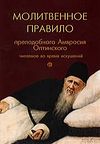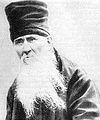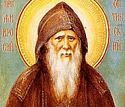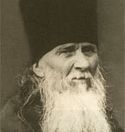

| Previous day | Next day |
| Old Style
October 10
|
Tuesday |
New Style
October 23
|
| 22nd Week after Pentecost. Tone 4. | No fast.
|
![]() Martyrs Eulampius and Eulampia and 200 martyrs with them, at Nicomedia (303-311).
Martyrs Eulampius and Eulampia and 200 martyrs with them, at Nicomedia (303-311). ![]() St. Ambrose, elder, of Optina Monastery (1891). St. Innocent, bishop of Penza (1819).
St. Ambrose, elder, of Optina Monastery (1891). St. Innocent, bishop of Penza (1819).
Martyr Theotecnus of Antioch (3rd-4th c.). St. Bassian of Constantinople (ca. 458). St. Theophilus the Confessor, of Bulgaria (716). Blessed Andrew of Totma (Vologda), fool-for-Christ (1673). New Hieromartyr Theodore (Pozdeyevsky), archbishop of Volokolamsk (1937). Sts. Stephen (1094) and Amphilochius (1122), bishops of Vladimir in Volhynia; St. Yaropolk-Peter, prince of Vladimir in Volhynia (1086); St. Theodore (in monasticism Theodosius) of the Kiev Caves, prince of Ostrog in Volhynia (1483); St. Juliana, princess of Olshansk (ca. 1540); St. Job, abbot and wonderworker of Pochaev (1651); and Hieromartyr Macarius of Kanev, archimandrite, of Obruch and Pinsk (1678). Synaxis of the Saints of Volhynia:
Zographou Icon of the Most Holy Theotokos “Of the Akathist.”
St. Pinytus, bishop of Knossos on Crete (2nd c.). Martyrs of the Theban Legion, along the Rhine: Sts. Cassius and Florentius, at Bonn; Sts. Gereon and companions, at Cologne; and Sts. Victor and companions, at Xanten (Germany) (ca. 287). St. Paulinus, archbishop of York (644). Martyrdom of the 26 Martyrs of Zographou Monastery on Mt. Athos by the Latins: Abbot Thomas, Monks Barsanuphius, Cyril, Micah, Simon, Hilarion, Job, James, Cyprian, Sabbas, James, Martinian, Cosmas, Sergius, Paul, Menas, Ioasaph, Ioannicius, Anthony, Euthymius, Dometian, and Parthenius, and four laymen (1284).
Repose of Schemamonk Theodore, desert-dweller of Valaam (1834).
Thoughts for Each Day of the Year
According to the Daily Church Readings from the Word of God
By St. Theophan the Recluse

Tuesday. [Col. 1:1-2, 7-11; Luke 8:1-3]
The Lord preaches, the women serve Him from their substance, and are thus as participants in his very preaching. It is not given to everyone to preach the Gospels, but everyone can help spread them, and be participants in this most important matter on the earth. There were many such participants, both men and women, at the time the holy apostles preached; and then at the time of their successors, and finally, throughout the entire history of the Church. Such participants exist to this day. Our apostles in the Caucasus and in various areas of Siberia labour zealously, suffering every need and deprivation. They continue the work of the Lord and the holy Apostles. Those men and women who send them help join the ranks of the women who served the Lord, and become worthy of equal recompense. The Lord said: He that receiveth whomsoever I send receiveth Me (John 13:20). This means that He equates Himself with the one who is sent to preach; it would follow that He equates the service rendered to his messengers with serving Him. According to the law of His goodness and truth, the way a person receives one determines the reward he will receive (Matt. 10:41). This would seem to be sufficient incentive to keep giving alms to help in the great work of preaching of the Gospels.
Articles
 Synaxis of the Saints of VolhyniaOn this day, we commemorate the Synaxis of Saints of Volhynia—one of the most ancient domains of Christian Rus’, and now part of western Ukraine. |











